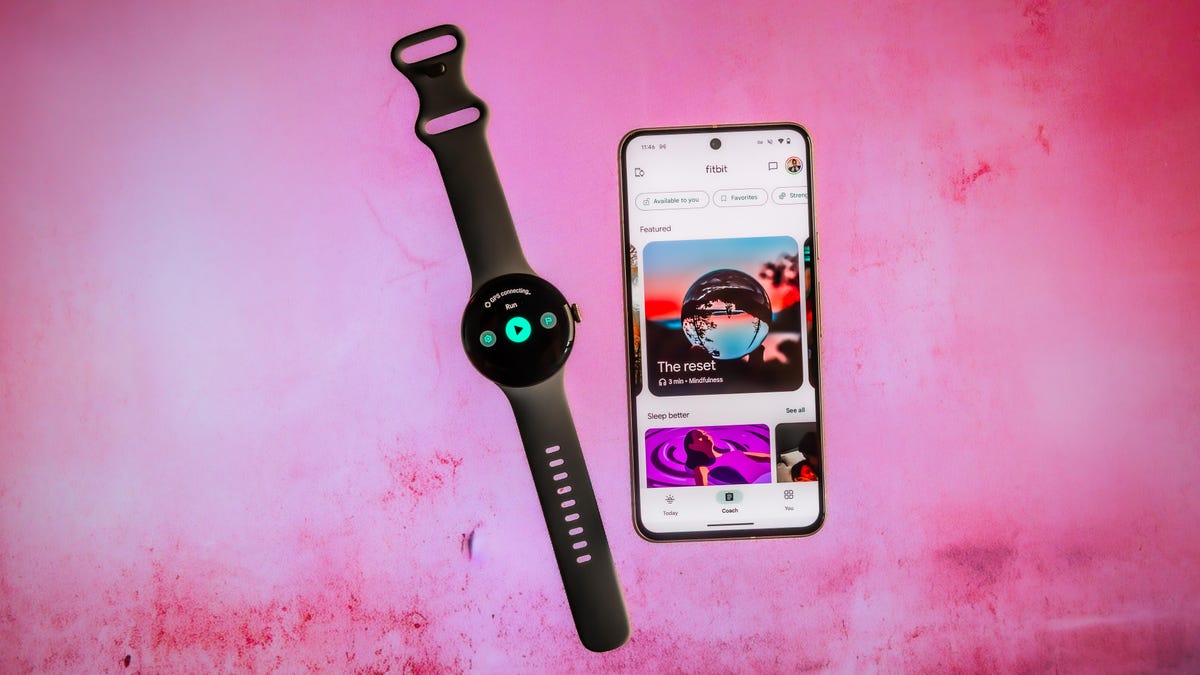Google's New AI Model Will Crunch Your Fitbit Stats to Be Your Personal Coach
Google's Personal Health Large Language Model provides a glimpse into its health coaching ambitions for the Fitbit app.

Google's AI models can already generate images and answer questions. Next, it wants to be your health coach.
Google on Tuesday announced that it's developing a Personal Health Large Language model based on its Gemini models to analyze Fitbit data so that it can provide wellness advice and recommendations. Google hasn't shared details on when the model will be integrated into products, although a company representative says the new model will power its upcoming experimental Fitbit Labs program and other AI features in the future. Still, the announcement provides further insight into its future plans for bringing generative AI to its Fitbit and Pixel devices.
Read more: Smart Rings Pick Up Where Fitness Trackers Left Off
As an example, Google cites the ability to examine sleep patterns and make suggestions about how to adjust your exercise routine based on those findings. That scenario falls in line with how Google positioned Fitbit Labs during its Made by Google event last year, during which it demonstrated how Google's AI could parse through data about recent running workouts to answer a question about why today's run felt more difficult than previous ones. Google says the model is trained using de-identified health signals from research case studies, which are being validated with accredited coaches and wellness experts.
Like many health features found on today's smartwatches and fitness trackers, Google's Personal Health Large Language Model isn't meant to make a medical diagnosis or treat any conditions. Rather, the goal behind the model is to make it easier to understand and navigate Fitbit data, Florence Thng, director and product lead at Fitbit, said during a press briefing ahead of the event.
An example showing the type of information Fitbit Labs will be able to provide.
The announcement comes as Google's Gemini AI model has come under scrutiny for creating images of people that were historically inaccurate. This mishap was a reminder that generative AI models and chatbots still struggle with issues like hallucination and bias, meaning the information they provide isn't always trustworthy.
During a press briefing, Thng addressed such concerns by noting that tools based on the Personal Health Large Language Model will be launched as experimental Labs features, allowing Google to gather feedback before rolling the tech out more widely. In addition to understanding physiological data, Thng also said the model has been trained to use tools appropriately. That means it should understand concepts that might appear in prompts like "best," "worst" and "highest" and calculate the math accordingly.
There are still many unanswered questions about Google's new health model, including when it will arrive and which products we'll see it in. Another important question is whether this model will be capable of running on-device or if it will require an internet connection.
On-device processing is generally considered to be more secure since data never has to leave your device, a principle Apple was very vocal about when announcing Siri's ability to answer health-related questions on the Apple Watch Series 9. But running the model in the cloud would allow these generative AI-powered features to run on a broader range of devices, including older phones that may not be powerful enough to run advanced AI models locally.
We're expecting to learn more about the company's generative AI plans during Google I/O, its annual developers conference where it often shares crucial updates regarding its products and technologies.
Editors' note: CNET is using an AI engine to help create some stories. For more, see this post.

